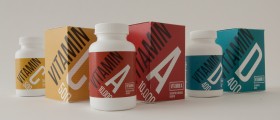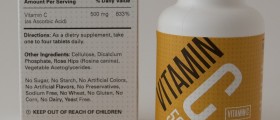
Vitamins are essential for human health. These nutrients play an important role in many body functions can prevent diseases. It is important to take sufficient amounts of each vitamin, but also to be careful not to exceed the recommended dosages.
Vitamin C
Vitamin C is a very powerful antioxidant, which means it repairs the damage caused by free radicals. It also participates in production of collagen, which is a protein that builds bones, muscles and tendons.
Vitamin C is important for healing of wounds and it strengthens the immune system. This vitamin is essential for fighting infections like common cold or flu. It reduces the symptoms and the severity of many diseases and it also reduces the risk of some types of cancer. Vitamin C is also very important for proper absorption of iron in the body.
This vitamin can be found in many foods, namely citrus fruits, berries, peaches, mangos, broccoli, tomato, peppers, kale, Brussels sprouts, etc.
Deficiency of vitamin C occurs when the body does not receive proper amounts of this essential nutrient. This can result in a disease called scurvy. On the other hand, too much vitamin C can lead to toxicity.
Vitamin C toxicity and symptoms
Vitamin C toxicity or overdose usually occurs in people who take too much vitamin C supplements for various reasons. If they take too much and exceed the recommended dose, it may result in toxicity.
Most experts agree that the recommended daily dose of vitamin C for adult males is 90 milligrams per day, and for females 75 milligrams per day. It is not rare that vitamin C capsules contain much more, usually from one to two grams of vitamin C, which is much more than required. If a person consumes foods rich in vitamin C and takes supplements, he or she must be careful not to exceed the recommended dose.
The upper limit for vitamin C intake is 2000 milligrams, which is two grams, per day. Anything above that may have harmful effects.
Vitamin C is water-soluble and it is not stored in the body. The excess is usually expelled by urination, however it is possible that high amounts of this vitamin increase the acid levels in the body. Too much vitamin C can also cause kidney stones, to great absorption of iron and too much uric acid in urine.
The symptoms of vitamin C toxicity may include nausea, vomiting, diarrhea, stomach cramps, skin rash, and damaged tooth enamel.

















Your thoughts on this
Loading...